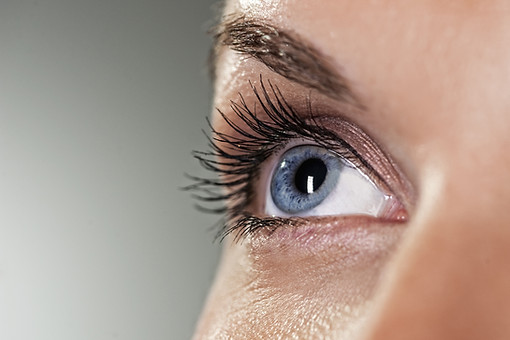
Healing Services
Care By A Professional You Can Trust
Hypnotherapy

Hypnotherapy induces a state of suggestibility in which the client can increase motivation, and alter behavioural patterns. The treatment enhances one's concentration and increases responsiveness to positive suggestions in order to facilitate beneficial changes in thought patterns, behaviours, or responses to fear and phobias.

Counselling
Psychotherapy, Hypnosis, EMDR and Energy Psychology provide a safe environment in which one can freely and honestly communicate with a licensed practitioner who is bound by an ethical framework for good practice established and maintained by the relevant licensing bodies.
Psychotherapy gives the individual a chance to rediscover who one really is, to review past behaviours and attitudes that may be causing the client difficulties and thwarting full growth. I provide a confidential and non-judgmental opportunity to facilitate personal development and a redefinition of one's goals, plans and hopes within a realistic, workable framework.
Individuals seeking therapy for various and specific reasons can be grouped into four categories:
-
Distressing Symptoms - anxiety, depression, or unrealistic fears or phobias
-
Inability to think rationally (thought disorder)
-
Problems in social and interpersonal functioning that disrupts work, social and personal relationships
-
Feelings of dissatisfaction regarding one's life and accomplishment
Some of the most common complaints addressed in Counselling and Hypnotherapy are:
-
Feelings of anxiety and an inability to cope with life
-
Complaints of emptiness, sadness and depression
-
Difficulty in making or sustaining relationships
-
Problems facing losses, such as bereavement, divorce, loss of employment
-
Obsessional behaviour
-
Bullying
-
Sexual, physical, or emotional abuse
I offer Integrative Counselling, Hypnosis and EMDR within a holistic framework, which means I combine various techniques and therapies to match each individual's needs.
Hypnotherapy
Hypnotherapy induces a state of suggestibility in which the client can increase motivation, and alter behavioural patterns. The treatment enhances one's concentration and increases responsiveness to positive suggestions in order to facilitate beneficial changes in thought patterns, behaviours, or responses to fear and phobias.
Hypnosis is not sleep; it is a natural occurring state of mind brought about by the use of a set of relaxation techniques. It is a normal and spontaneous mental event that we inhabit on a daily basis.
One has experienced a form of hypnosis if one has daydreamed, missed an exit on the highway, cried when watching a movie, or been frightened while reading. These are all moments when we enter into an altered state of suggestibility.
There are some common misconceptions about hypnosis, exacerbated by distorted media reports and erroneous film segments which lead one to believe the hypnotist can control the client. This is simply NOT true. The hypnotist cannot control the client; one merely enters into a state of relaxed suggestibility in the session.
Hypnosis induces a state of complete relaxation, wherein the client can experience what is termed the "Bypass of the Critical Factor" and then establish acceptable selective thinking. The "critical factor" is that little niggling voice that tells us we cannot do something. It is the comparing factor in our mind and protects the status quo and resists change.
When in a hypnotic state, one will have the feeling of profound relaxation, whilst remaining in complete control. No one has ever been hurt or damaged by hypnosis; the worst thing that could happen is that one could fall into a state of sleep and not go into hypnosis.
Hypnotherapy is a way to rediscover one's inner strength, put problems into perspective from a dysfunctional, often addictive, out-of-control spiral, creating a clearer, more positive mindset with which to cope with life's challenges.
Hypnotherapy can help in a number of areas such as:
-
Addictions
-
Fears and Phobis
-
Goal Achievement
-
Smoking Cessation
-
Relaxation
-
Weight Management - overeating, binge eating
-
Stress and Anxiety
-
Pain Control
-
Exam/Interview Nerves
-
Self-Esteem and Self Confidence
-
Relationship Issues
-
Grief and Loss
-
Public Speaking
-
And many more issues

EDMR
EMDR is an acronym for "Eye Movement Desensitisation and Reprocessing". It is a powerful treatment modality developed by Dr. Francine Shapiro, an American clinical psychologist in 1987. She published the first research data supporting the benefits of EMDR in 1989.
It treats traumatic, or "dysfunctional" memories and experiences and their psychological consequences. The procedure has been predominantly used in the treatment of Post Traumatic Stress Disorder (PTSD)and it is currently the most successful modality in dealing with this ailment. A wealth of international clinical research demonstrates its benefits in treating psychological (often termed 'big T' trauma) from various sources, including childhood sexual and/or physical abuse or neglect, assault, surgical trauma, road traffic accidents, workplace accidents and war trauma and natural disasters.
EMDR is also increasingly used to treat 'small T' trauma, including phobias, test and performance anxiety, general anxiety, panic disorders, pain management, sexual dysfunction and a wide range of experientially-based disorders.
Auricular Therapy
Auricular Therapy or Auriculotherapy describes the treatment of addictions, pain, muscular-skeletal disorders, and a broad range of medical conditions with the application of low energy laser, massage, or acupuncture needles to specific locations on the ear.
Auriculotherapy and its key extension, Auriculomedecine, was discovered and developed by a French doctor, Dr. Paul Nogier, who worked extensively in the field of ear acupuncture. In the early 1950's, he determined a somatotopic presentation of the inverted fetus in the ear, whereby the parts of the anatomy of the fetus correspond to specific zones of the ear.
This discovery spawned a lifetime of continued research from small reflexive treatments, initially for Sciatica, to various powerful therapies that can identify, and treat specific body systems and dysfunctions from dental neuralgia to smoking and substance use.
The stimulation of the auricle of the external ear is utilised to alleviate negative health conditions in the body by locating the active (pathological) points in the ear using the Auricular Cardiac Reflex. This is similar to locating pulse points in Chinese medicine which are the determinants of illness or disturbance the Chi, or natural body energy.
I use Auricular Therapy for Substance Use and Drug Detoxification, Nervous Drinking, Smoking Withdrawl and Weight Control and within the first session, clients feel their cravings lessen. The recommended treatment for drug or smoking withdrawal is at least six sessions within the first month, with a fortnightly or monthly top-up.




